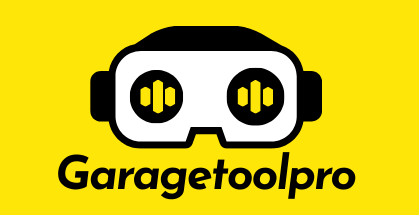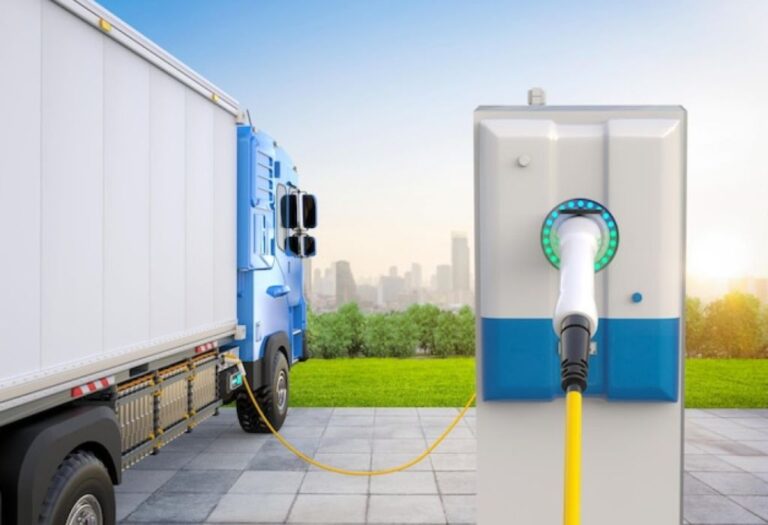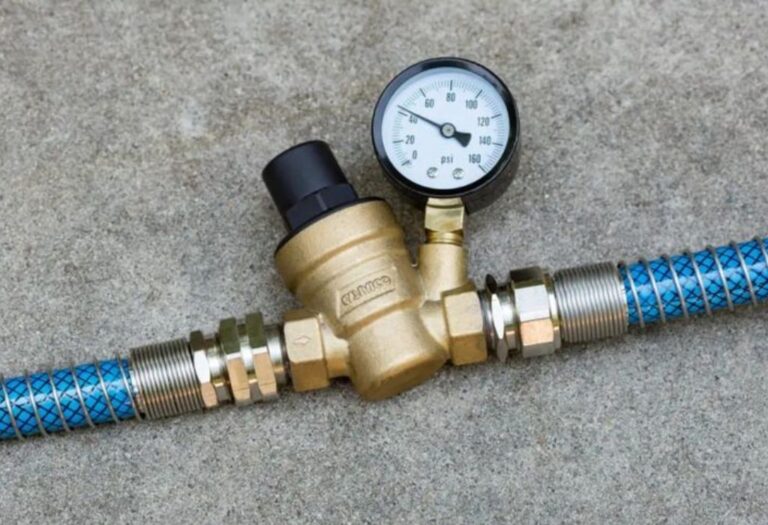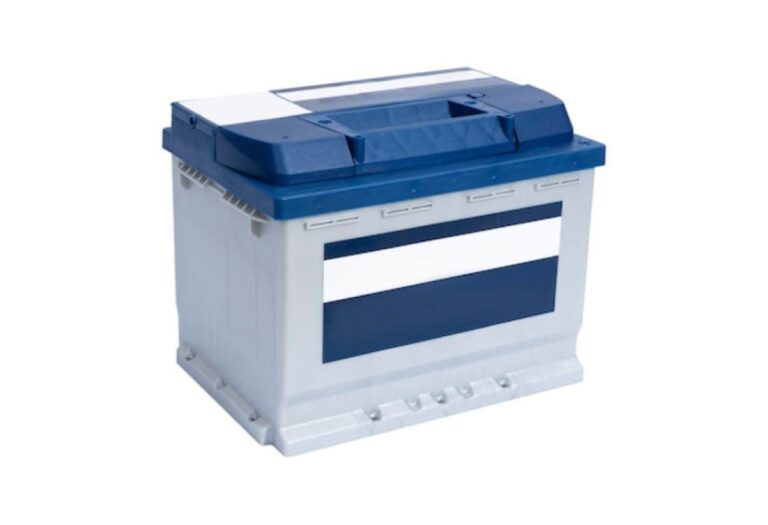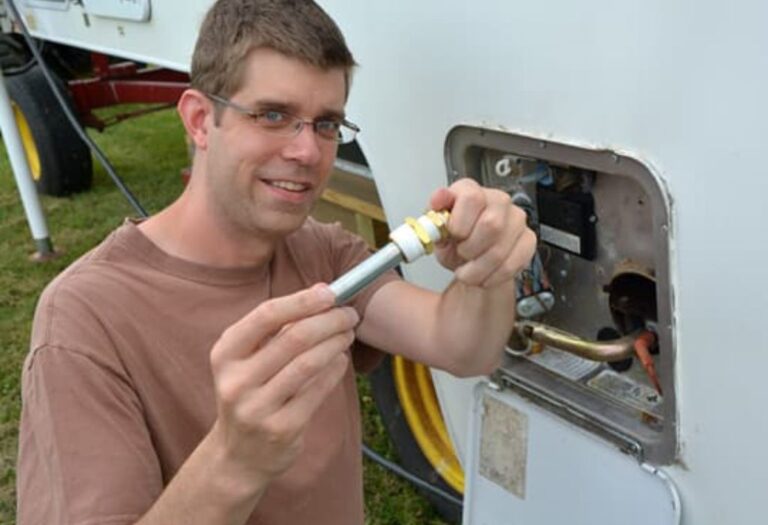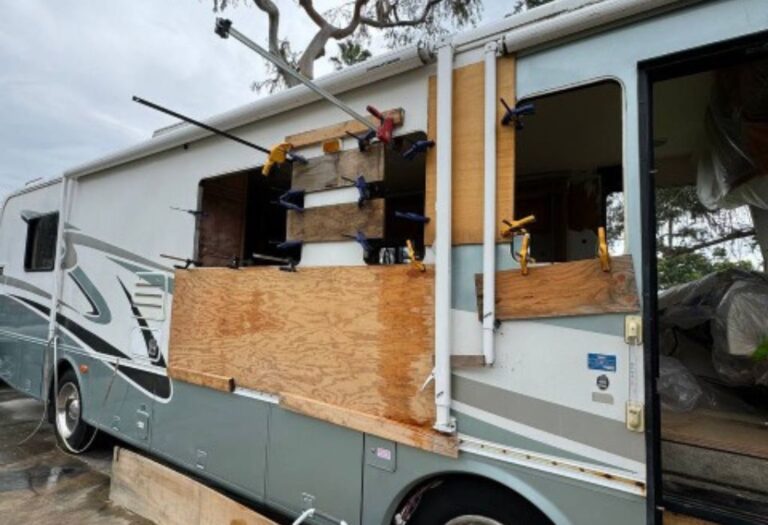How Long for an RV Water Heater to Heat Up?
Imagine finishing a long day on the road, parking your RV beside a quiet lake, and looking forward to a steaming shower before dinner. You flip on the water heater, turn on the tap, and instead of warm comfort, you’re greeted by a blast of cold water that refuses to heat up.
This is a common frustration for RV owners who don’t know exactly how long their water heater takes to warm up. The truth is, the heating time varies widely depending on the model, tank size, temperature, and whether you’re using propane, electricity, or both.
According to RVshare, most RV water heaters take between 20 and 30 minutes to fully heat when operating on propane, while electric models can require 45 minutes to over an hour. That delay often feels endless when you’re waiting to bathe or clean dishes after travel.
The variation happens because RV water heaters come in different types and capacities. A smaller six-gallon tank heats faster, while a ten-gallon unit or larger motorhome system needs extra time, especially in colder weather. A forum study on Jayco Owners confirms that propane burners provide higher BTU output, which cuts heat-up time nearly in half compared with electric elements alone.
Knowing how long for an RV water heater to heat up helps you plan daily routines and energy use efficiently. It also allows you to spot problems early, like mineral buildup, thermostat failure, or insulation issues that make the process slower.
In the sections ahead, you’ll discover the real factors behind heating times, practical ways to reduce waiting, and expert tips to keep your RV water heater running faster and more efficiently wherever your journey takes you.
What “How Long for RV Water Heater to Heat Up” Really Means
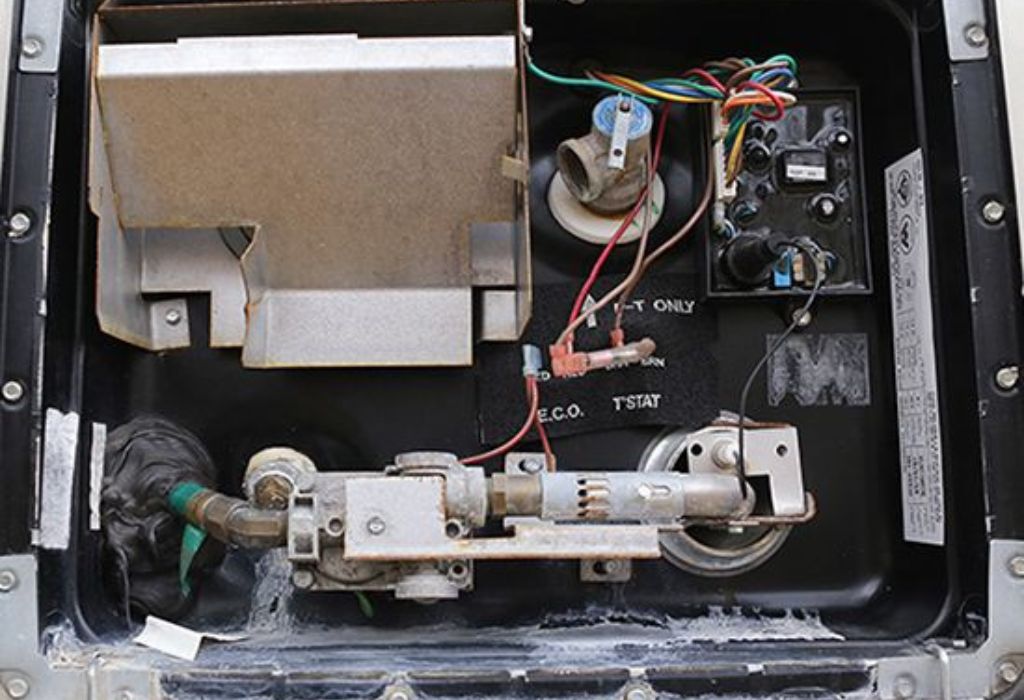
When people ask how long it takes for an RV water heater to heat up, they’re referring to the time it takes for cold water in the tank to reach a comfortable, usable temperature. This period varies depending on the type of heater, energy source, and starting water temperature.
Most RV water heaters rely on either propane, electricity, or a combination of both to generate heat. Propane typically delivers a faster warm-up because it burns at higher BTU output, while electric heating elements work more slowly but steadily.
For tank-style water heaters, the heat-up time generally falls between 15 and 45 minutes. Smaller six-gallon tanks often reach the ideal temperature quicker than larger ten-gallon systems commonly found in Class A or fifth-wheel RVs.
The situation is different for tankless or on-demand water heaters. These models provide hot water almost instantly, as they heat the water while it flows through the unit rather than storing it. (Michigan RV & Campgrounds)
Understanding what this “heat-up time” really means helps you manage your expectations and prepare better for your camping routine. It ensures you know when to start the heater so your water is ready when you need it most.
How long should an RV water heater take to heat up on average?
Typically around 15–20 minutes when using propane or dual-mode operation, though electric-only setups may need 45 minutes or more. (RVshare)
Does the size of the tank affect heat-up time?
Yes. Smaller tanks heat faster, while larger tanks require more time and energy to reach optimal temperature.
How does the heating source influence the time?
Propane heats the water faster because of higher energy output, while electric heating elements are slower but more energy-efficient. (Jayco Owners Forum)
Do tankless RV water heaters still need heat-up time?
Not in the traditional sense. Tankless models provide near-instant hot water, though there may still be a few seconds of delay before it reaches your faucet.
Does ambient temperature play a role in how fast it heats up?
Absolutely. Cold outdoor air or cold incoming water increases the heating time significantly, especially in early spring or winter camping.
Key Factors That Affect How Long for RV Water Heater to Heat Up
Several key factors determine the exact heating time for your RV’s water system. Understanding these will help you identify why your water may be taking longer than expected to warm up.
The most important influences include the power source, tank size, ambient temperature, and water temperature entering the system. Even maintenance and usage patterns play a major role in overall performance.
Propane-powered units tend to heat more quickly because they release higher BTU energy. Electric models, while quieter and more consistent, simply take longer because their heating elements generate less heat intensity. (Forestriver Forums)
Ambient air and water temperatures also matter more than most people realize. The colder the weather or the lower the inlet water temperature, the longer the heater will take to reach its set point.
Maintenance factors such as sediment buildup, corrosion, or aging heating elements can also slow down heating efficiency over time. Keeping your system clean ensures optimal heat transfer and shorter wait times.
How does incoming water temperature affect heating time?
Cold water from an external source takes longer to heat than warm water already inside the system.
Do weather and altitude affect heat-up performance?
Yes. Colder climates and higher elevations reduce heating efficiency, especially in propane systems.
Can dirty tanks or sediment buildup slow heating?
Definitely. Sediment forms an insulating layer that blocks heat transfer from the element or burner to the water.
Does tank insulation make a difference?
Yes. Well-insulated water heaters retain heat better, reducing both heat-up and reheat times.
Should you run both propane and electric at once?
Yes — using both simultaneously can shorten heating time by nearly half in most cases. (Jayco Owners Forum)
Typical Heat-Up Time Benchmarks & What to Expect
Knowing average heating times helps you set realistic expectations before hitting the road. These figures vary by model, brand, and conditions but provide a good starting point.
In standard propane-only operation, a 6-gallon water heater generally heats up in 15–20 minutes. Larger 10-gallon tanks often need 25–35 minutes, depending on weather and water conditions. (MyGrandRV)
Electric-only setups can require 45–60 minutes to reach the same temperature range. Cold climates, especially when water temperature drops below 50°F (10°C), can extend that time even further.
When you combine propane and electric modes, the results improve dramatically. Dual-mode operation often cuts total heating time to 15–20 minutes for a full tank. (RVshare)
Is 10 minutes enough to heat a full tank?
Rarely. Ten minutes may heat small systems slightly, but full readiness usually takes 15–30 minutes.
What if it takes longer than 40 minutes?
That’s still within range for electric mode, but it might also signal buildup or weak heating components.
Does using hot water early slow the next cycle?
Yes. Drawing hot water before the full tank is ready lowers efficiency and extends recovery time.
Do newer models heat faster than older ones?
Yes — modern RV water heaters with higher BTU ratings and better insulation outperform older units.
Are there performance differences between brands?
Slightly. Some brands optimize burner design and heating coils, giving up to 20 percent faster recovery.
Ways to Reduce the Time for Your RV Water Heater to Heat Up
Reducing how long for an RV water heater to heat up is possible through small adjustments and upgrades. Efficiency starts with preparation and proper mode selection.
Turning on your water heater 15–20 minutes before you need hot water ensures readiness. Running both propane and electric simultaneously significantly shortens wait time. (Jayco Owners Forum)
Improving tank insulation, maintaining the burner and heating element, and flushing out sediment every season can make your heater perform like new. A clean, insulated tank retains heat more efficiently and recovers faster after each use.
For those seeking long-term convenience, upgrading to a tankless RV water heater delivers near-instant hot water while conserving energy. These systems heat water on demand, eliminating standby losses. (Michigan RV & Campgrounds)
Should I leave my water heater on all day?
Not necessary. Turn it on 15–20 minutes before use to save energy while maintaining comfort.
Is dual-mode operation safe?
Yes, running both propane and electric together is safe and recommended for faster heating.
Does insulating the tank help?
Absolutely — insulation prevents heat loss and keeps water warm longer, reducing the next heat-up cycle.
Can low water pressure increase heating time?
Yes. Low flow slows circulation and reduces efficiency, especially in tankless models.
Is a tankless system worth the cost?
Yes, if you value instant hot water and energy savings. It eliminates long waiting times completely.
When Heat-Up Time Seems Too Long — Troubleshooting Checklist
If your RV water heater takes far longer than normal to heat, it might signal a performance issue. A few basic checks can help identify and fix the cause.
Start by confirming your water heater isn’t set to bypass mode, especially after winterization. Incorrect valve positions can cause water to loop around the tank instead of filling it properly. (Forest River Forums)
Inspect for sediment buildup, which insulates heating elements and burners, reducing heat transfer efficiency. Flushing the tank at least twice per year keeps performance consistent.
Next, test your thermostat and heating element. A faulty thermostat might prevent the heater from maintaining the proper temperature range.
Lastly, check your ventilation and burner area. Poor airflow reduces combustion efficiency and slows propane heating drastically.
Why is my water heater taking over an hour to heat?
Likely sediment buildup, weak heating element, or electric-only operation in cold weather.
Could valve positions cause the delay?
Yes, if bypass valves are set incorrectly, water may circulate around the tank instead of heating properly.
How can I tell if the element is burnt out?
No heating or extremely long cycles usually indicate a damaged or burned-out element.
Do I need to flush the tank regularly?
Yes — flushing removes minerals and buildup that drastically increase heating times.
Is low propane pressure a possible cause?
Absolutely. A partially closed valve or empty tank can slow ignition and reduce burner efficiency.
Upgrades & Future Trends in RV Water Heaters
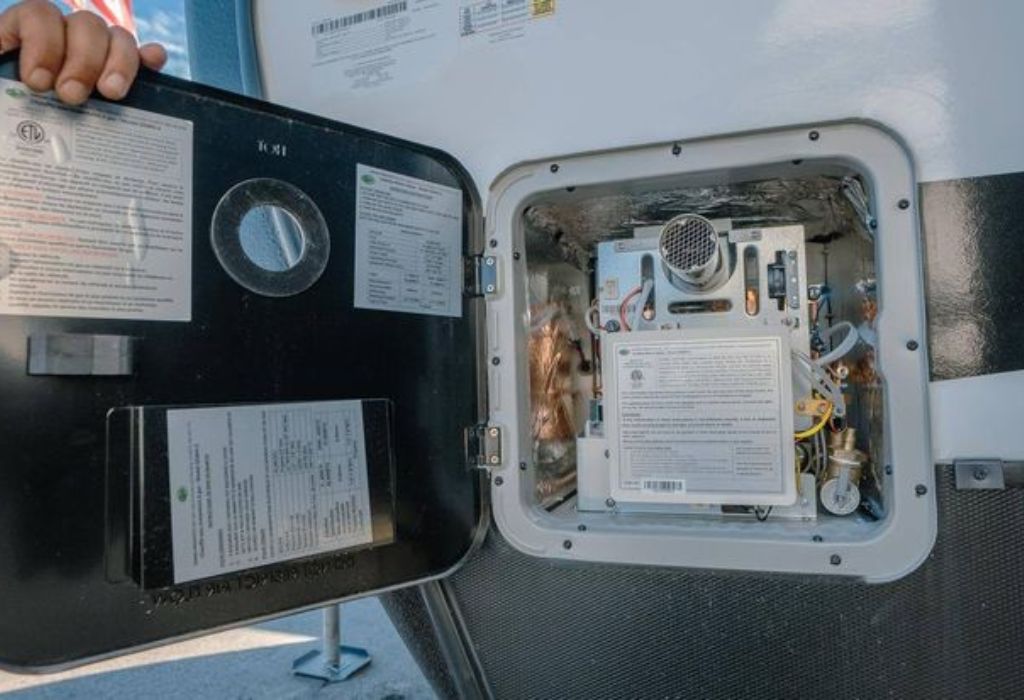
The future of RV water heating focuses on faster, smarter, and more efficient technology. New systems are designed to provide instant comfort with minimal energy waste.
Hybrid heaters now combine propane, electric, and heat-pump technology for rapid recovery and improved efficiency. Some models even include digital thermostats and mobile control systems for remote activation.
Tankless water heaters are becoming the preferred upgrade among RV enthusiasts. These deliver on-demand hot water, saving both space and fuel while nearly eliminating heat-up delay. (Michigan RV & Campgrounds)
Manufacturers are also increasing BTU outputs and improving insulation materials. This allows newer 10-gallon heaters to match the warm-up speed of older 6-gallon units. (Keystone Forums)
What is a hybrid RV water heater?
It uses multiple power sources to improve speed and energy efficiency while allowing flexible operation.
Are tankless heaters reliable for boondocking?
Yes — with proper water pressure and fuel supply, they work efficiently off-grid and save propane.
Will smart RV heaters become common?
Yes, models with Wi-Fi control and temperature monitoring are entering the market rapidly.
Do modern heaters really heat faster?
Yes — improved BTU ratings and design enhancements reduce average heating times by up to 25 percent.
Should RV owners upgrade now or wait?
If your system is slow, outdated, or inefficient, upgrading now can save time, energy, and frustration on every trip.
Conclusion
Knowing how long for an RV water heater to heat up can make your RV experience smoother and more comfortable. Whether your system takes 15 minutes on propane or nearly an hour on electric, understanding the variables helps you plan better and conserve energy.
Factors such as tank size, weather conditions, and maintenance habits all influence heat-up speed. Keeping your heater clean, running both power modes, and upgrading when needed ensures consistent hot water whenever you travel.
Most importantly, don’t see long heating times as normal if they exceed expected benchmarks. A quick check or upgrade can save you time, energy, and cold showers for seasons to come.
So next time you arrive at your campsite, turn on the heater early, let it work efficiently, and enjoy the comfort of perfectly warm water — every single trip.
I’m David R. Coleman, the founder, lead writer, and lifelong tool enthusiast behind GarageToolPro.com. With years of experience in automotive repair, woodworking, and home DIY projects, I created this platform to share practical tips, detailed tool reviews, and step-by-step guides that help mechanics, hobbyists, and homeowners get the job done right the first time.
